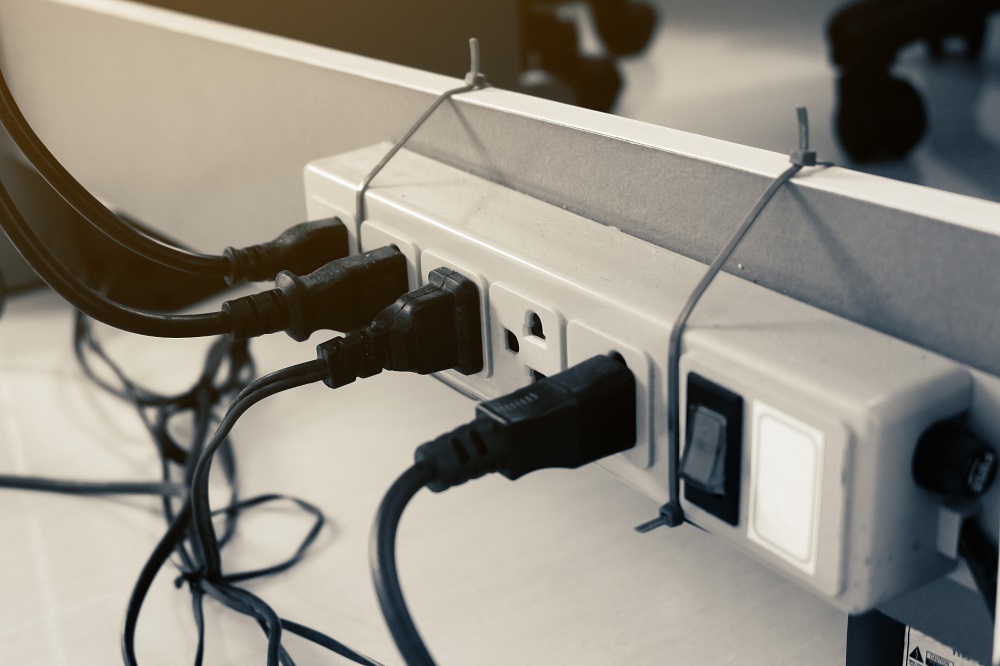Electricity is one of the cornerstones of modern society. It lights up our homes, powers our appliances, and allows us to handle everyday tasks with ease that would’ve been unthinkable in ancient times. However, electricity can pose a significant threat if improperly harnessed.
Household electrical hazards can put you at risk of serious or even fatal injuries. Understanding these electrical hazards is a first step to keeping yourself and your family safe from harm. If you do suffer injuries caused by defective or dangerous appliances, an experienced personal injury attorney in Jersey City may be able to help. Keep reading to learn more about household electrical hazards and how to avoid them.
Frayed Wires and Faulty Wiring
Frayed wires and faulty wiring can lead to overheating, sparking, and fires. Potential signs of issues include:
- Cracked insulation
- Exposed conductors
- Loose connections
- discoloration or melting around outlets and switches
Even a few seemingly insignificant sparks can ignite nearby curtains, furniture, or paper, starting a blaze that’s nearly impossible to put out.
Overloaded Outlets and Circuits
Every outlet has a limited capacity, and exceeding it by plugging in too many appliances is a recipe for disaster. Overloaded circuits can overheat, melt wires, and trigger circuit breakers. In extreme cases, an overloaded circuit can even unleash electrical arcs, increasing the risk of electrocution or a house fire. Before plugging in that extra toaster, coffee maker, or space heater, assess the load to make sure you aren’t pushing your outlet beyond a safe capacity.
Water and Electricity – A Volatile Alliance
Water and electricity should never be combined. Damaged appliance cords near sinks, exposed outlets in bathrooms, and even water splashed onto plugged-in devices can create a dangerous pathway for electricity. These situations can result in shocks, burns, or even electrocution. It’s important to be particularly cautious in your home’s kitchen and bathroom.
Extension Cord Accidents
Haphazardly-placed extension cords can become trip hazards and potential firestarters. When using extension cords, you should make sure they are clearly visible to anyone visiting your home. Avoid running them under carpets, across doorways, or over furniture, as this can cause damage to the cable over time and cause dangerous levels of overheating. To safely use an extension cord, never overload them by plugging in multiple devices. If you notice that an extension cord has visible kinks, tears, or exposed wires, do not use it and have it replaced right away.
Curious Critters and Exposed Wiring
Unsafe electrical systems can put our beloved pets at risk of serious harm, since they cannot understand the dangers of chewing on exposed wires. To keep your pets safe, ensure all wiring is appropriately concealed behind walls, under baseboards, or within secure casings. This tamper-proof system keeps your pet from chewing on or messing with wiring, thus reducing the risk of electrical shocks.
When in Doubt, Call an Electrician!
The temptation to fix a flickering light bulb or rewire a plug might seem harmless, but you should never attempt to do complex electrical repairs without proper knowledge, training, and tools. Attempting to perform DIY home repairs can result in electrocution, additional problems, or even a fire. Leave advanced electrical repairs and installations to qualified electricians with the expertise and safety equipment to handle the job.
Reducing Your Risk by Staying Aware of Hazards
The power to mitigate household electrical hazards lies within our grasp. Here are some practical steps to build a safer home environment:
- Regular Inspections: Perform periodic visual checks of your electrical system, looking for signs of wear and tear, faulty connections, or overloaded outlets.
- Test and Replace: Regularly test smoke detectors and ensure your home has functional fire extinguishers readily accessible. Replace damaged appliance cords and worn-out plugs promptly.
- Grounding Matters: Ensure all appliances with three-prong plugs are correctly grounded for additional safety.
- Unplug at Night: Disconnect unused appliances and chargers to minimize standby power consumption and eliminate potential fire hazards.
- Educate and Empower: Discuss electrical safety with children and ensure they understand the dangers of tampering with outlets, cords, and appliances.
Protecting Your Home From Electrical Hazards
Electrical hazards can pose a significant risk to your health and the well-being of everyone else in your household. By gaining a deeper understanding of common issues that could arise, you can effectively act to proactively safeguard your home. We hope this article helps you avoid common electrical issues and stay safe!

